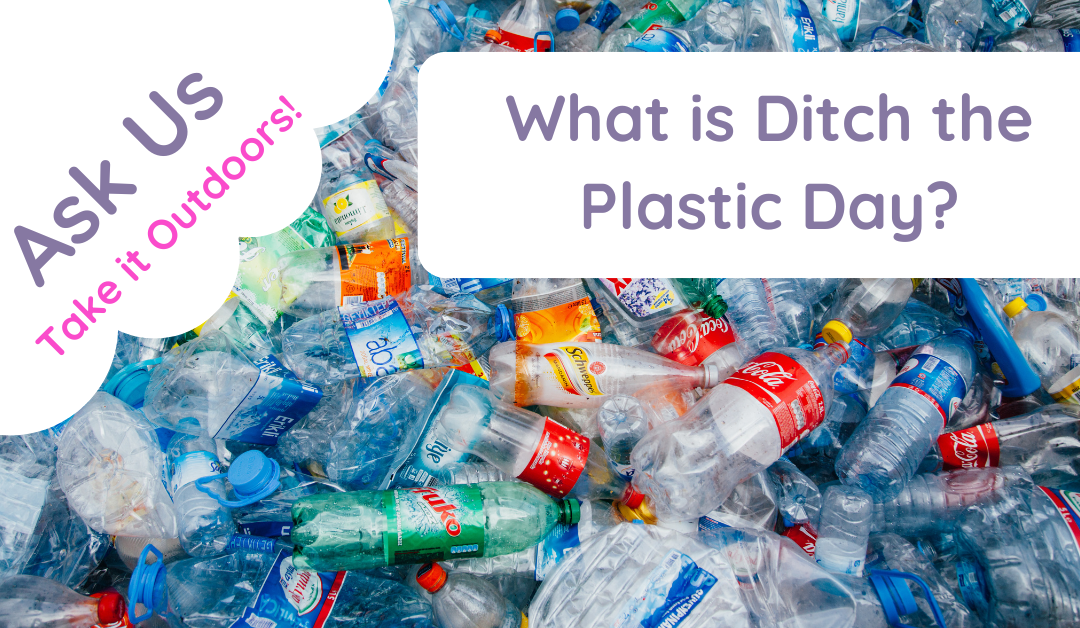What Is Ditch the Plastic Day?
Ditch the Plastic Day is a global initiative dedicated to raising awareness about the detrimental impact of plastic pollution on our environment and encouraging individuals, communities, and businesses to reduce their plastic usage. This special day aims to inspire people to make more sustainable choices, embrace eco-friendly alternatives, and ultimately reduce the amount of plastic waste that ends up in our oceans, landfills, and natural habitats. In this blog post, we will delve into the significance of Ditch the Plastic Day, its benefits, and practical ways to participate.
The Importance of Ditch the Plastic Day
Plastic pollution is a pressing environmental issue that poses significant threats to wildlife, marine life, and human health. Each year, millions of tonnes of plastic waste are produced, with a large portion ending up in the ocean. This pollution can cause severe harm to marine animals, disrupt ecosystems, and even enter the human food chain through microplastics. Ditch the Plastic Day serves as a reminder of the urgent need to address this issue and encourages collective action to reduce plastic waste.
External Resource: Plastic Pollution Coalition – The Problem of Plastic Pollution Internal Resource: Muddy Puddle Teacher – Environmental Education Resources
Benefits of Ditch the Plastic Day
1. Raises Awareness
Ditch the Plastic Day highlights the environmental impact of plastic pollution and educates people about the importance of reducing plastic use.
External Resource: National Geographic – Plastic Pollution
2. Promotes Sustainable Practices
The day encourages individuals and organisations to adopt sustainable practices, such as using reusable bags, bottles, and containers.
External Resource: WWF – Reducing Plastic Pollution
3. Protects Wildlife and Marine Life
Reducing plastic waste helps protect wildlife and marine life from the dangers of plastic ingestion and entanglement.
External Resource: Ocean Conservancy – Marine Debris
4. Reduces Carbon Footprint
Using less plastic reduces the carbon footprint associated with the production and disposal of plastic products.
External Resource: Earth Day – Plastic and Climate Change
5. Encourages Community Involvement
Ditch the Plastic Day fosters community involvement and collective action, bringing people together to tackle plastic pollution.
External Resource: Greenpeace – Plastic-Free Communities
How to Participate in Ditch the Plastic Day
1. Organise a Cleanup Event
Gather friends, family, or community members to clean up local parks, beaches, or neighbourhoods. Collect and properly dispose of plastic waste to reduce pollution.
External Resource: Surfers Against Sewage – Organise a Beach Clean
2. Use Reusable Products
Switch to reusable bags, bottles, and containers. Encourage others to do the same by highlighting the environmental benefits of reducing single-use plastics.
External Resource: Friends of the Earth – Reusable Products Guide
3. Educate Others
Host workshops, seminars, or online events to educate people about the impact of plastic pollution and the importance of sustainable practices.
External Resource: Plastic Free July – Education Resources
4. Support Plastic-Free Businesses
Patronise businesses that have committed to reducing plastic waste. Support companies that offer sustainable alternatives and avoid those that rely heavily on single-use plastics.
External Resource: Plastic Pollution Coalition – Plastic-Free Businesses
5. Advocate for Policy Change
Get involved in advocacy efforts to push for policies that reduce plastic production and promote recycling and sustainability.
External Resource: Break Free From Plastic – Advocacy and Policy
Educational Activities for Ditch the Plastic Day
1. Plastic Audit
Conduct a plastic audit at home or school to identify the types and amounts of plastic waste generated. Use the results to develop a plan to reduce plastic use.
External Resource: Eco-Schools – Plastic Audit Guide
2. Art Projects with Recycled Materials
Create art projects using recycled plastic materials. This activity not only promotes recycling but also fosters creativity and environmental awareness.
External Resource: The Art of Education – Recycled Art Projects
3. Educational Films and Documentaries
Watch films and documentaries about plastic pollution to learn more about its impact and solutions. Hold discussions or write reflections on what was learned.
External Resource: National Geographic – Documentaries on Plastic Pollution
4. Gardening with Recycled Containers
Start a garden using recycled plastic containers. This teaches children about recycling and the benefits of growing their own food.
External Resource: Gardening Know How – Recycled Container Gardening
5. Interactive Workshops
Host workshops that teach practical skills, such as making eco-friendly cleaning products or DIY reusable bags, to reduce plastic use at home.
External Resource: Eartheasy – DIY Workshops
Recommended Resources from Muddy Puddle Teacher
To support participation in Ditch the Plastic Day, Muddy Puddle Teacher offers a variety of resources:
- Environmental Education Resources
- Outdoor Learning Guides
- Health Benefits of Outdoor Learning
- Sustainable Classroom Activities
- Teamwork Activities
Conclusion
Ditch the Plastic Day is a vital initiative that raises awareness about the impact of plastic pollution and encourages sustainable practices. By participating in activities such as cleanup events, using reusable products, and supporting plastic-free businesses, individuals and communities can make a significant difference in reducing plastic waste. Embracing this day not only benefits the environment but also fosters a sense of responsibility and stewardship. Join the movement and take action on Ditch the Plastic Day to create a cleaner, greener planet.


